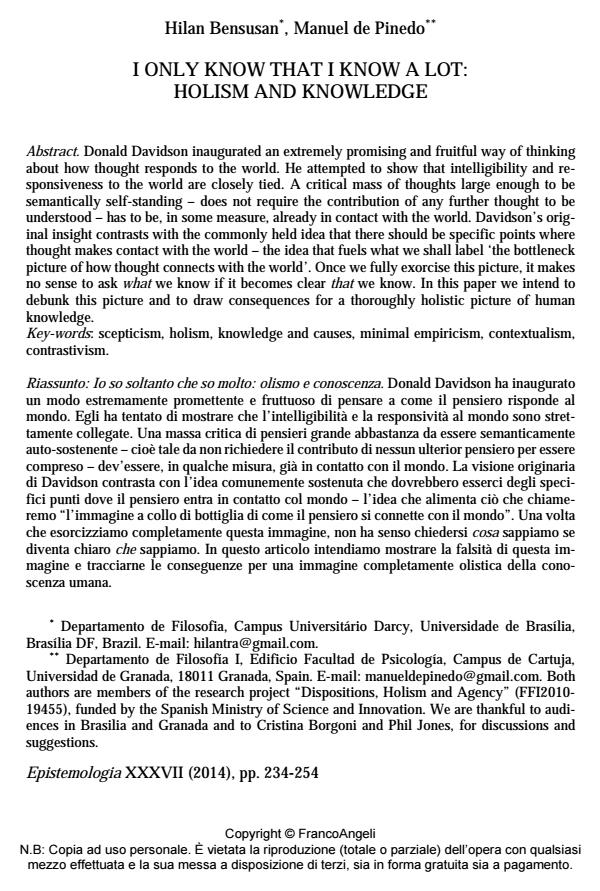I only know that i know a lot: holism and knowledge
Titolo Rivista EPISTEMOLOGIA
Autori/Curatori Hilan Bensusan, Manuel de Pinedo
Anno di pubblicazione 2015 Fascicolo 2014/2
Lingua Inglese Numero pagine 21 P. 234-254 Dimensione file 82 KB
DOI 10.3280/EPIS2014-002004
Il DOI è il codice a barre della proprietà intellettuale: per saperne di più
clicca qui
Qui sotto puoi vedere in anteprima la prima pagina di questo articolo.
Se questo articolo ti interessa, lo puoi acquistare (e scaricare in formato pdf) seguendo le facili indicazioni per acquistare il download credit. Acquista Download Credits per scaricare questo Articolo in formato PDF

FrancoAngeli è membro della Publishers International Linking Association, Inc (PILA), associazione indipendente e non profit per facilitare (attraverso i servizi tecnologici implementati da CrossRef.org) l’accesso degli studiosi ai contenuti digitali nelle pubblicazioni professionali e scientifiche.
Donald Davidson inaugurated an extremely promising and fruitful way of thinking about how thought responds to the world. He attempted to show that intelligibility and responsiveness to the world are closely tied. A critical mass of thoughts large enough to be semantically self-standing - does not require the contribution of any further thought to be understood - has to be, in some measure, already in contact with the world. Davidson’s original insight contrasts with the commonly held idea that there should be specific points where thought makes contact with the world - the idea that fuels what we shall label ‘the bottleneck picture of how thought connects with the world’. Once we fully exorcise this picture, it makes no sense to ask what we know if it becomes clear that we know. In this paper we intend to debunk this picture and to draw consequences for a thoroughly holistic picture of human knowledge.
Parole chiave:Scepticism, holism, knowledge and causes, minimal empiricism, contextualism, contrastivism
Hilan Bensusan, Manuel de Pinedo, I only know that i know a lot: holism and knowledge in "EPISTEMOLOGIA" 2/2014, pp 234-254, DOI: 10.3280/EPIS2014-002004